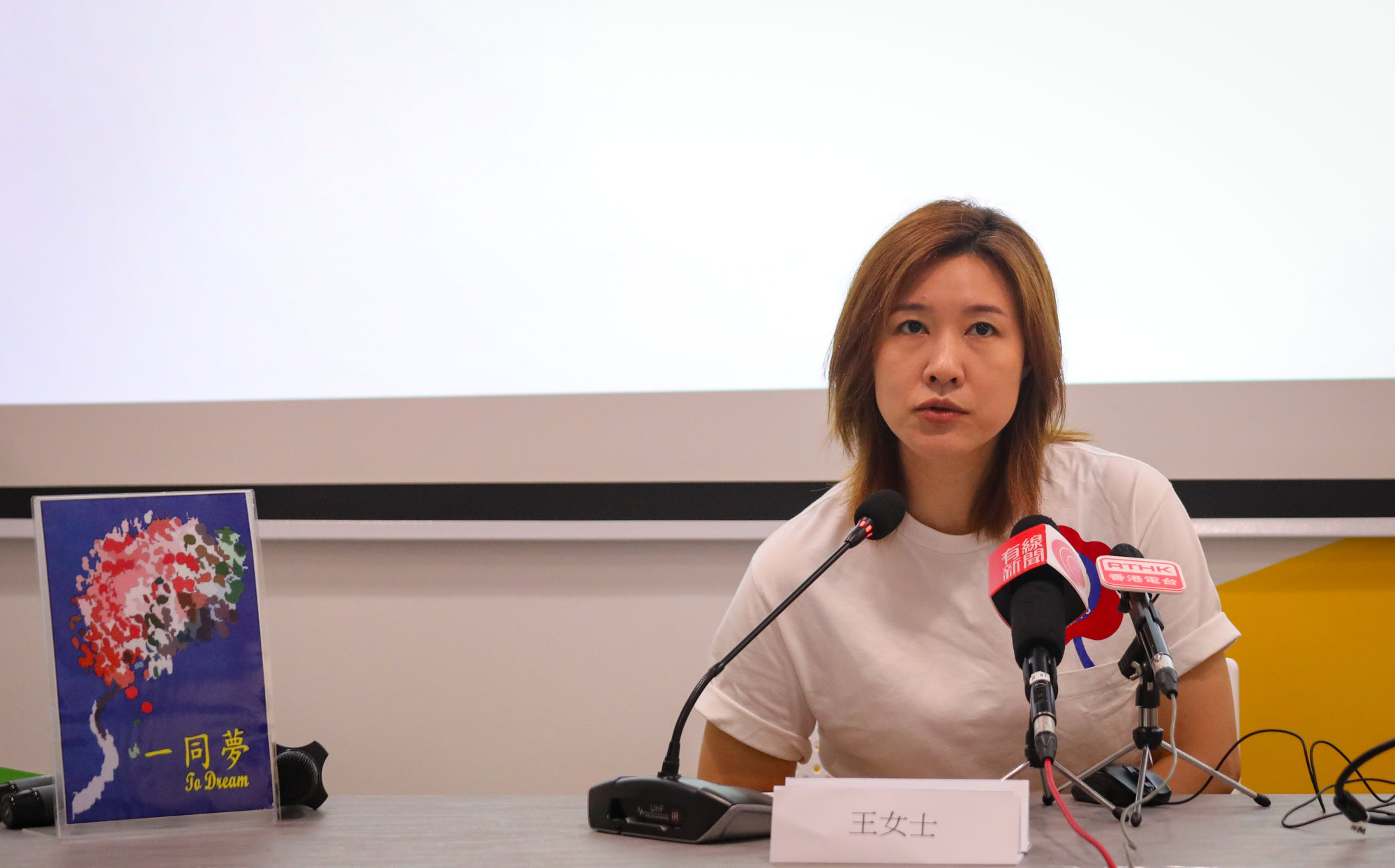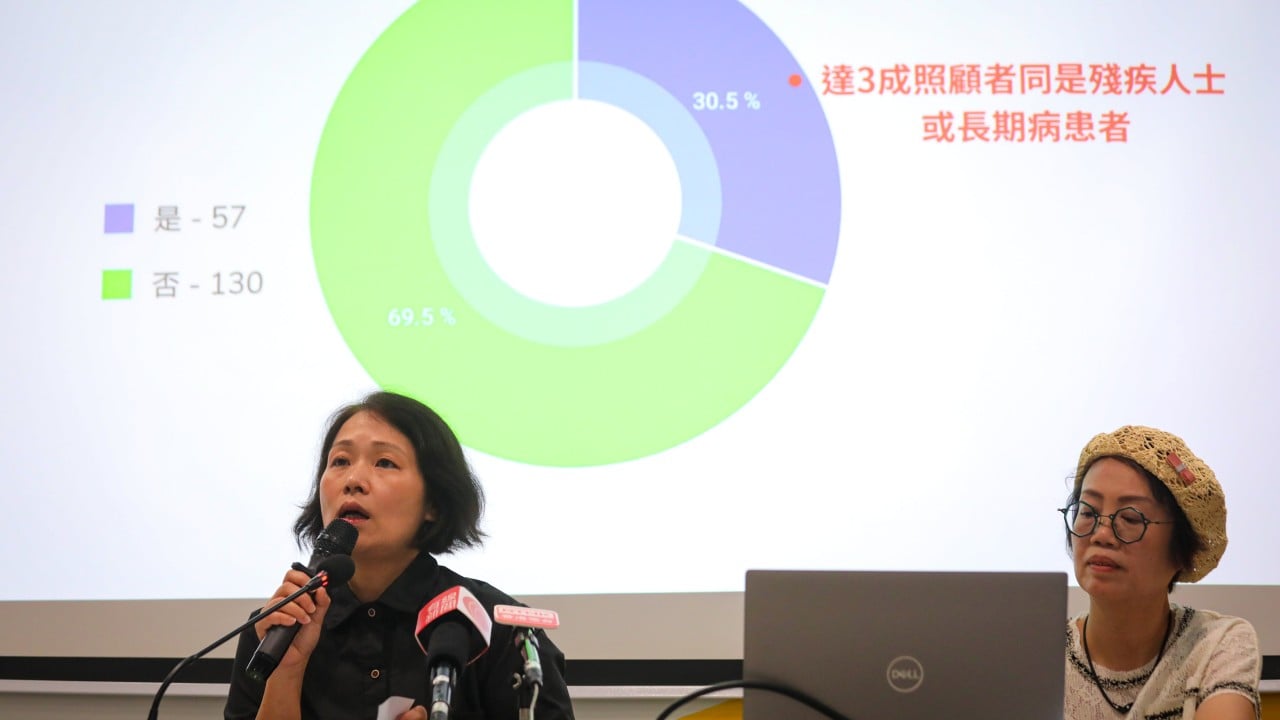Hong Kong autism charity says new teams set up to aid pupils’ move from school to adult life have ‘unclear’ scope of operations
A Hong Kong autism support group has said it is disappointed by the “unclear” scope and operation of government teams set up to help school leavers with special needs to integrate into wider society.
Macy Chong Po-king, the chairwoman of the To Dream Charity Foundation, said parents and carers needed more support, despite last October’s policy address commitment to set up teams to liaise with special needs pupils at least six months before they finished school.
The teams, set up at a cost of HK$110 million (US$14 million), were designed to smooth pupils’ transition to life in the adult world in the wake of a string of family tragedies.
“Once the children leave the safety net of special schools, the carers need to take up all the roles that the school was playing, but this is a huge challenge because we did not receive any professional training before,” Chong explained.
“Our children desperately need support with learning to be part of the community, finding a job, and contributing to society on their own, especially when the waiting time for residential care is up to more than a decade.”

The Social Welfare Department in April set up special teams in each of the 21 district support centres for young people with a disability.
The government said the teams were tasked with the provision of training in caring and interaction skills, the arrangement of post-school care plans and linking up school leavers and their families with community services.
The support staff are also expected to provide follow-up services to those who need them for 18 months after they finish their schooling.
Each team has six members, including social workers, a driver, a personal care worker, and an occupational therapist.
Each is eligible for a subsidy to buy a vehicle and the teams are expected to help a total of 600 school leavers and their carers every year.
She said some members of the charity had been to talks by the teams and to interviews, but no services had yet been provided.
Chong appealed to authorities to adopt a case management model to provide tailor-made services for each family and ensure sufficient training for carers.
She highlighted areas such as advice on what parents or carers should do if people laughed at their children.
A 42-year-old carer who asked to be identified only by the surname Wong, whose 20-year-old son has mild autism and is due to leave school in July, is among the parents keen to take advantage of the new service.
“We went to a talk and we were left confused because the teams did not have a clear direction on what they were going to do, though they seemed to be willing to listen to our opinion,” Wong said.
She added many parents and carers were concerned because they had heard of cases of autistic people suffering sexual harassment, but they were unable to express themselves, and also being reported to police after they got into conflicts with others.
“I hope the designated teams can be our eyes and help us see where our children can find their place in the community, especially after we are no longer able to care for them,” Wong said.
The charity surveyed 187 carers in February and found 80 per cent suffered from emotional difficulties and more than half struggled with their care duties, finances and family relationships.
The poll also found 20 per cent respondents were not clients of any social welfare services, which meant they were largely hidden from the rest of society and vulnerable.
The charity said the designated teams could help plug the gaps and also assist those who graduated from vocational training schools.
Chong added some struggled to fit in with others at work and had to quit their jobs and ended up sitting around all day because no more career services were available.
“The stress among carers reached its peak during long holidays, when the children returned home from school or other care services,” she said.
“The government should increase the quota of respite services during those periods to ease their burden.”
Bonnie Chui, a 57-year-old woman who cares for her autistic 23-year-old son, who also has a moderate intellectual disability, said it was hard to find suitable services.
She added he could not sit still for vocational training, but was also uncomfortable with the idea of joining interest classes at district support centres.
Chui said she took him to the parent group every day for volunteer work as he felt more at ease around people with the same condition.
“Many parents are stuck in between like me,” she added. “I hope there will be more skills-training courses suitable for him.
“I could teach some skills on my own, but I am not a professional, and he needs to learn to get along with others too, not just with his parents.”
The Social Welfare Department said the teams had contacted special schools to identify youngsters in need.
Talks and briefing sessions for carers will be held to introduce the services and community resources as the intake of cases progresses.
Hong Kong has seen a series of family tragedies in recent years among families with a high burden of caring, which led the government to step up support for people looking after those with disabilities.
A 53-year-old mother said to suffer from depression, is alleged to have harmed her 20-year-old twin sons, who have autism and intellectual disabilities, and herself with a knife last October because of stress.
The mother was arrested after the three were found in their flat with cut wounds to their stomachs.
The twins had just finished at a special school and were on the waiting list for day care support and residential care.


